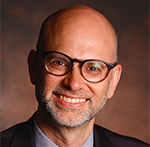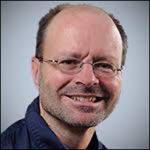A modular, open-access curriculum created at Vanderbilt that’s designed to expand the ability of high school teachers to use technology in learning offers an engaging introduction to advanced topics that are currently accessible only to computer science majors in college.
Programming for a Networked World is a beginner-level MOOC (massive open online course) on Coursera that takes about 24 hours to complete and offers a flexible schedule. Modules include the fundamentals of programming concepts, the basics of distributed computing and computer networking, and problem solving using NetsBlox, a successful block-based educational programming environment previously developed at Vanderbilt. Although designed for teachers, it is accessible to students who want to learn block-based programming.
The MOOC was created primarily as an online professional development opportunity for teachers who may want to teach another Vanderbilt-developed course, The Frontiers of Computing, designed for high school students. That course has been approved by the Tennessee Department of Educations and is being piloted at Nashville’s Martin Luther King Jr. Magnet High School.

Both courses are projects within the LIVE (Learning Incubator: a Vanderbilt Endeavor) Initiative, which is devoted to a new way of thinking about technology’s role in teaching and learning, with interdisciplinary teams from the School of Engineering, Peabody College and the College of Arts and Science.
Programming for a Networked World was developed by Clifford B. Anderson, chief digital strategist at the Vanderbilt University Library, Computer Science Professor Akos Ledeczi, and Brian Broll, PhD’18, a research scientist at Vanderbilt’s Institute for Software Integrated Systems and the chief architect of NetsBlox, who are also the course instructors.

“The course teaches the basics of computer science in a relaxed, down-to-earth, and visually appealing manner,” Anderson said. “Building on our transdisciplinary collaboration, the MOOC will appeal to those from all educational fields and scholarly backgrounds. Our hope with this course is to make the leading ideas of computer programming and distributed computing accessible to all.”
“With the generous support by Vanderbilt seed funding, the National Science Foundation and the National Security Agency, NetsBlox has matured into a set of sophisticated educational tools that have been shown to be able to teach high school students widely used but advanced technologies such as distributed computing, the internet of things, cybersecurity and machine learning,” Ledeczi said.

“The last couple of years we have focused on creating curriculum and corresponding professional development resources for teachers to have a broad impact across the United States and beyond,” Ledeczi added.
Contact: brenda.ellis@vanderbilt.edu